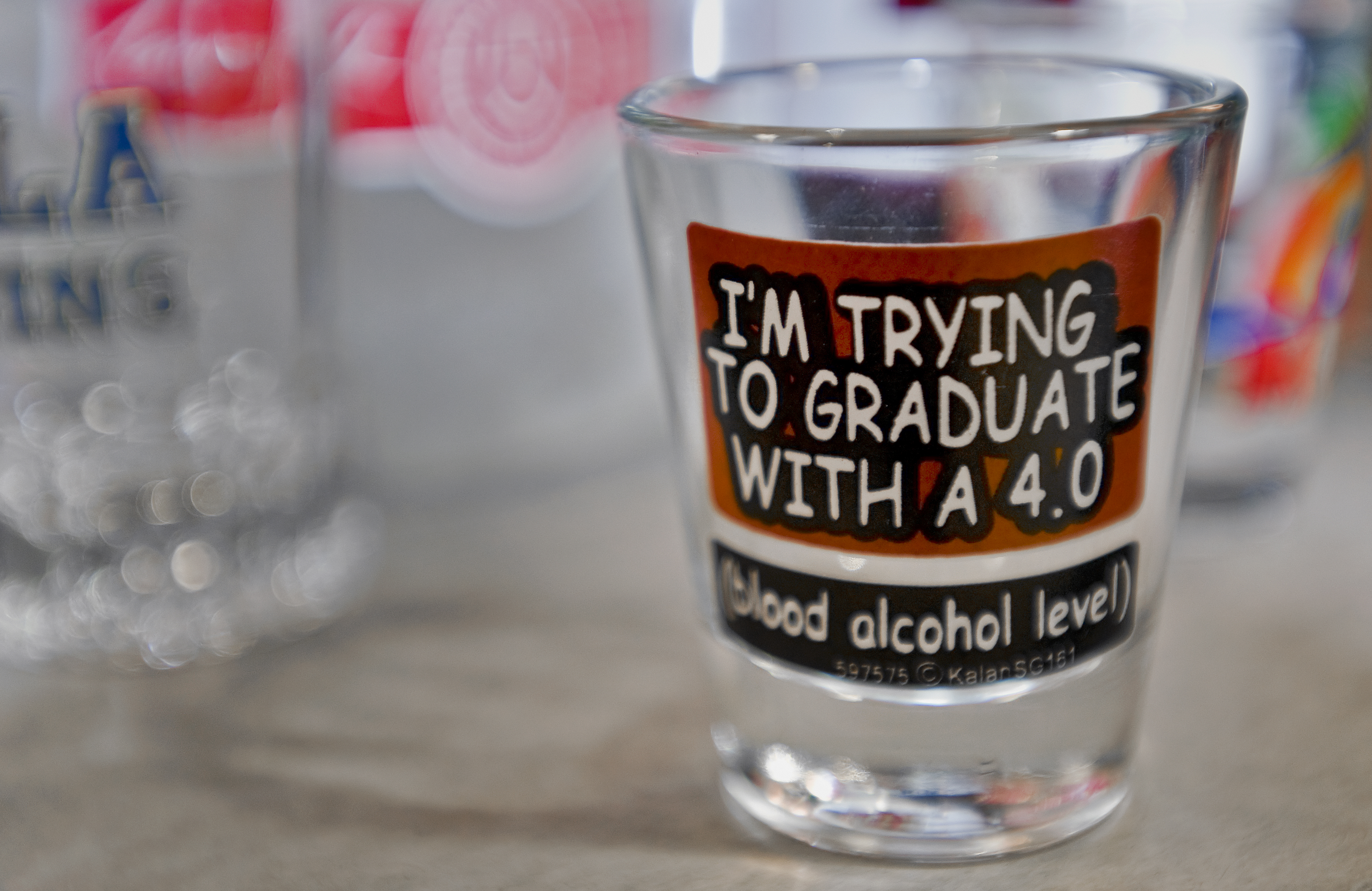College party scene is crippled by alcoholism

By Geoffrey Wright
May 14, 2009 9:01 p.m.
Whether you party hard or hardly at all, the sight of a blacked-out college student in the midst of a drinking binge is so familiar within the Greek system that it hardly seems strange at all. While this is likely true of UCLA’s greater party scene as well, as a member of the Greek system myself, I can only speak about my experience.
The pervasiveness of blacking out makes it seem almost normal, as if drinking oneself to the point of no return is as routine as going to class ““ or perhaps a reward for doing just that.
The truth is, binge drinking is neither normal nor necessary, but a far more disturbing practice that says a lot about the people who do it. Not everyone has the same reason for blacking out, yet rationalizing alcohol abuse as “just wanting to have fun” or part of a normal college experience is nothing more than a cop-out. It amounts to nothing more than a tactic smart people use to try and convince themselves that doing stupid things is all right.
I’m writing this not because I mean to preach about the dangers of alcohol abuse or take jabs at UCLA’s substantial Greek community, which too often gets scapegoated by people who would rather be anti-establishment than pro-anything. To do either would be hypocritical to say the least. That said, binge drinking is particularly prevalent in the Greek community because of the very nature of how friendships are made and identities established.
In the Greek system, so much of your initial experience meeting people revolves around drinking. Luc Bergevin, a second-year international development studies student and Greek member, said, “These interactions form the initial basis of the way people see you. With drinking playing such a large part in this process, it’s easy to see how people begin to rely on drinking as a necessary element of social interaction.”
People start to feel obligated to maintain the party-loving persona that has come to define them among others. This collective social pressure to play a roll all too often leads to excessive alcohol use.
I’m writing this because I know from close personal experience and the experiences of friends that binge drinking is more than the result of wanting to have fun. For some, it’s a way to compensate for insecurities or social awkwardness; for others, a way to forget or postpone things they’d rather not face. And for others still, it is a perceived notion that drinking will attract the opposite sex.
I’m writing this because I know a lot of people who can relate to what I’m saying, but for whatever reason the issue is rarely discussed.
Regardless of the reason, the fact that so many abuse alcohol, which is a chemical depressant, in a quest for satisfaction, acceptance and ultimately enjoyment, is inherently foolish. That many continue to do so despite it having the opposite effect that they intended is a disturbing trend.
Critics of this assessment would argue that the number of people who binge drink pales in comparison to those who drink in a healthier manner or not at all.
They’d be right. I do not mean to imply that everyone who parties at this school does so for the wrong reasons. When I look around at parties, I see a culture of binge drinking in which getting as drunk as possible in the shortest amount of time is the name of the game.
Others would say that we’re just young ““ that experimenting with the highs and lows of drinking is necessary to establish healthy drinking habits later in life.
Most people, however, find the experience of bad, sick drunkenness so aversive that they rarely do it more than a handful of times before they learn their lesson.
This is not the case here; people excitedly chug vodka straight from plastic handles, and then talk about how sick they got the next morning as if it’s a point of pride.
“Man, I was hammered last night,” they might say. “What’s on tap for tonight?”
A keg, probably ““ and a one-night stand with a toilet seat.
Albert Einstein once described insanity as “doing the same thing over and over again and expecting different results.”
I certainly hope Einstein was mistaken, or else UCLA is somehow populated with a significant percentage of insane people. Over and over, people at this school drink excessively with the expectation that it will make them feel good. But more often than not, heavy drinking results in a bad decision, a forgotten night or a wasted day because of a hangover.
That so many bright, young students engage in destructive drinking habits is frankly disturbing. When did “going out,” “having fun” or “partying” become synonymous with binge drinking? Are there really so many awkward, self-conscious people here that drunkenness is the only way we can have fun?
It certainly appears that way when I look around, but that shouldn’t be the case. Parties shouldn’t revolve around drinking alcohol and numbing one’s senses but rather enjoying the company of friends in a relaxed environment. Drinking can and always will be a big part of that, especially in college, but when abused to the point where socializing becomes impossible, it defeats the whole point of drinking in the first place.
If you disagree or think Wright is a hypocrite, e-mail him at [email protected]. Send general comments to [email protected].

